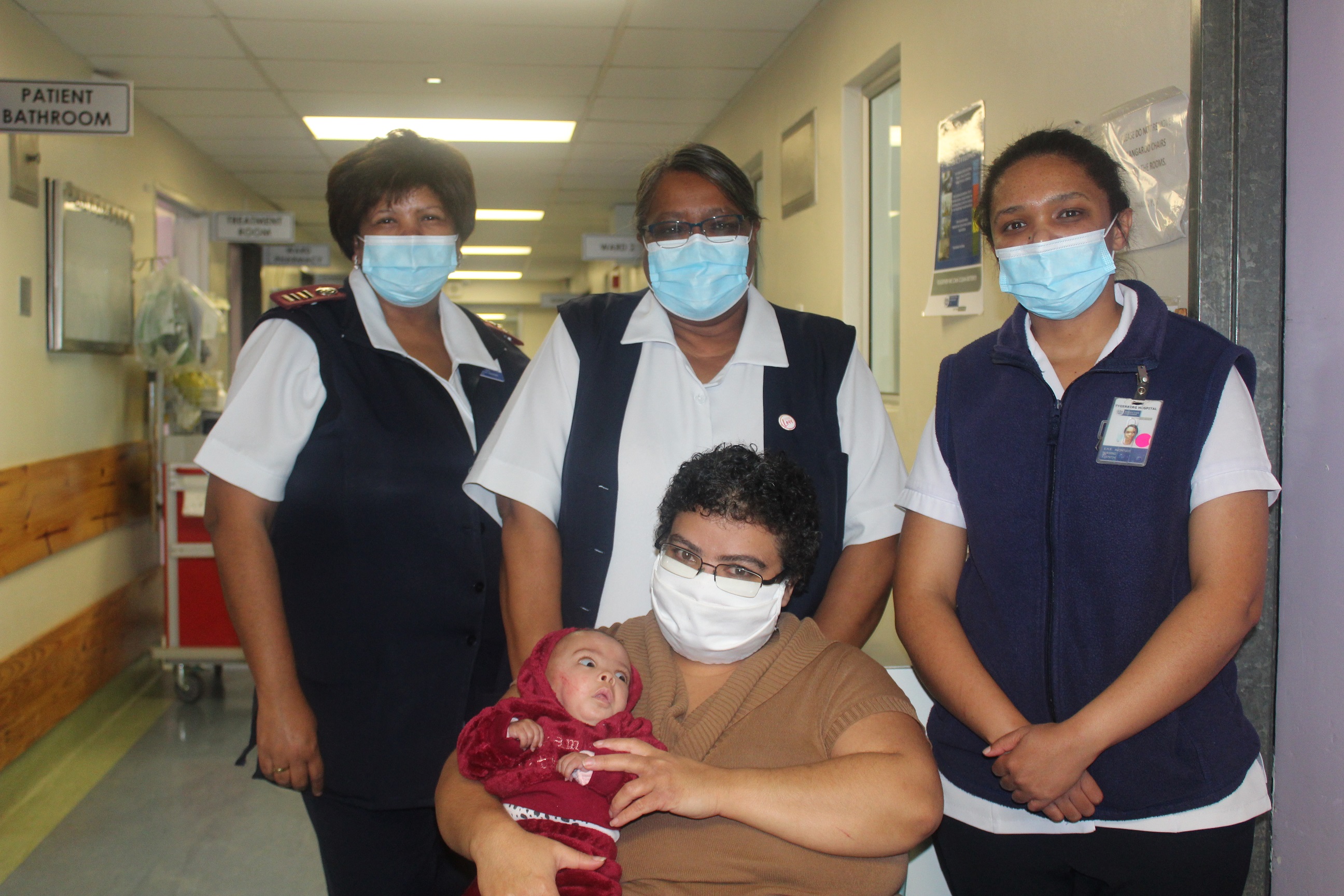
News
Mom steps in to save premature baby’s life
Despite being born at 26 weeks and 3 days and weighing only 700 g at birth, baby Britney Marcus is a survivor. Facing odds, she overcame many of the complications of prematurity and made it home. But just less than a month after Britney was discharged, she became very ill and stopped breathing. Fortunately, her brave mom – who had been advised on how to give infant cardiopulmonary resuscitation (CPR) by the nursing staff during those many long weeks in hospital – acted quickly. After life-saving CPR was administered by her mom, Britney was rushed to the Paediatric Intensive Care Unit (ICU) at Tygerberg Hospital where she was put on a ventilator (breathing machine) for about a week before slowly recovering.
‘We are grateful to the fantastic KMC (kangaroo mother care) nurses for their dedicated care of premature babies like Britney during the long and often difficult time spent in hospital, and for teaching life-saving interventions like infant CPR,’ said Dr Kerswill, paediatric registrar at Tygerberg Hospital.
Unfortunately, premature babies remain at risk for infection and Sudden Infant Death Syndrome (SIDS) for many months after they are discharged home. SIDS is when a baby who is younger than 1-year old dies suddenly (usually during sleep) and after an investigation, no cause can be found. SIDS can happen suddenly to a healthy baby.
Ms Portia Marcus, Britney’s mom, said: ‘I can’t thank the KMC Team of Tygerberg Hospital enough, especially ENA (Enrolled Nursing Assistant) Heather Saizs because if it was not for her teaching me those CPR techniques my baby won’t be alive today.’
Some important preventative measures for moms and families to know about include:
- Know how to administer infant CPR.
- Smoking in the household of a premature baby is a risk factor for SIDS and for pneumonia.
- Breastfeeding protects against SIDS and common infections like diarrhoea and pneumonia.
- Premature babies should get routine vaccinations as they are more at risk of picking up infections.
- Visitors to the household should always wash their hands before touching a premature baby, and if they have ‘flu’ symptoms they should not visit or touch the baby.
- Babies should be laid down to sleep on their backs, never on their tummies, to decrease the risk of SIDS.
ENA Heather Saizs concluded: ‘It makes me feel good knowing that my hard work leads to positive outcomes.’
Mrs Laticia Pienaar
Principal Communications Officer
Tygerberg Hospital
Tel: 021 938 5454
Cell: 081 039 4050
Fax2email: 086 601 5218
E-mail: Laticia.Pienaar@westerncape.gov.za





